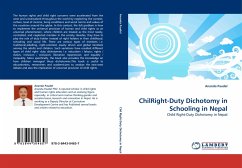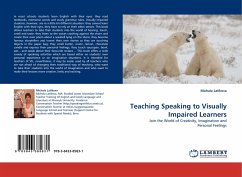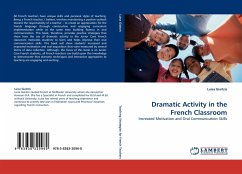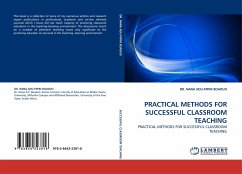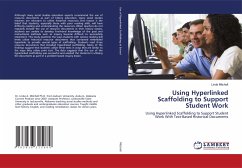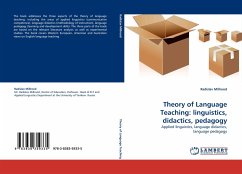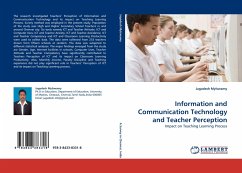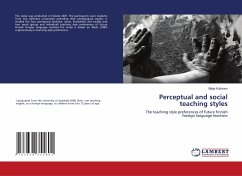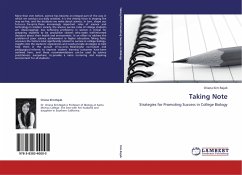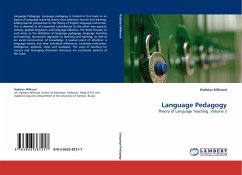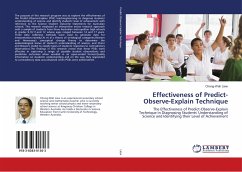
Effectiveness of Predict-Observe-Explain Technique
The Effectiveness of Predict-Observe-Explain Technique in Diagnosing Students' Understanding of Science and Identifying their Level of Achievement
Versandkostenfrei!
Versandfertig in 6-10 Tagen
52,99 €
inkl. MwSt.

PAYBACK Punkte
26 °P sammeln!
The purpose of this research program was to explore the effectiveness of the Predict-Observe-Explain (POE) teaching/learning to diagnose students' understanding of science and identify students' level of achievement with reference to the Science Student Outcome Statements for Australian schools. This research employed an interpretive action research approach with a sample of students from three Australian metropolitan high schools in grades 9,10,11,and 12 whose ages ranged between 14 and 17 years. Three data collection methods were used to generate data for interpretation,namely,Chi et al.'s t...
The purpose of this research program was to explore the effectiveness of the Predict-Observe-Explain (POE) teaching/learning to diagnose students' understanding of science and identify students' level of achievement with reference to the Science Student Outcome Statements for Australian schools. This research employed an interpretive action research approach with a sample of students from three Australian metropolitan high schools in grades 9,10,11,and 12 whose ages ranged between 14 and 17 years. Three data collection methods were used to generate data for interpretation,namely,Chi et al.'s theory of ontological categories,Hewson and Hennessey's conceptual change theory to determine the epistemological status of student's understanding of science, and Chinn and Brewer's model to classify types of students' responses to contradictory observations.The findings in this research reveal that these POEs were effective in capturing a range of possible student observations and prediction outcomes when worded in an open-ended format.Quality information on students' understanding and on the way they responded to contradictory data was obtained when POEs were administered.



